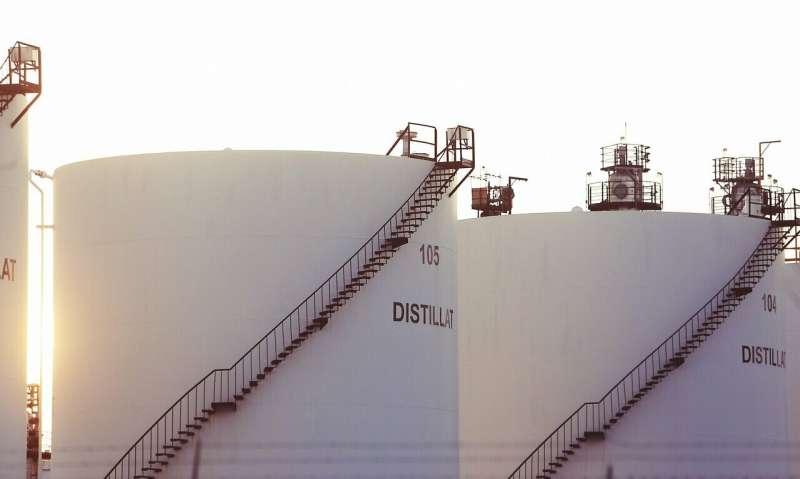March 19, 2019 report
Researchers suggest tight oil prices might be based on futures contracts instead of day-to-day price fluctuations

A pair of researchers, one with the Institute of Management and Economics at Clausthal University of Technology, the other the Department of Earth and Environment at Boston University, has found evidence that suggests oil prices might now be based on futures contracts instead of day-to-day price fluctuations. In their paper published in the journal Nature Energy, Esmail Ansari and Robert Kaufmann describe their study of the oil price market and suggest an explanation for its recent odd behavior.
Despite massive investments in renewable energy sources, the modern world is still very much dependent on both oil and natural gas. Because of that, the price of oil and the cost of obtaining it from the ground are still very important to virtually every country on the planet. For many years, the world was dependent on a few countries that were lucky enough to have huge amounts of oil beneath their land—many of those countries now make up OPEC. For much of the time of OPEC's dominance, the price of oil was set by its members, putting the rest of the world at their mercy. There was also the constant fear that someday in the not-to-distant future, the oil under the ground would run out. Because of these concerns, scientists looked into the possibility of extracting another type of oil (and gas) from the ground. It has come to be known as shale oil, though the researchers claim that the actual name is tight oil. It is oil that is obtained by injecting pressurized liquid into tight rock formations, releasing the oil and allowing it to be collected.
This new way to get oil has been ramped up in recent years and it has made a significant impact on oil, making more of it available and driving down prices. The researchers note that a critical juncture occurred back in 2014—prices had dropped so much that OPEC countries were beginning to panic. They met to discuss the possibility of reducing production levels, an option that in the past had led to pushing up the price for crude oil.
But this time around, they chose to not do so, believing that allowing the price of oil to drop even further would drive tight oil producers out of business because it costs more to get it out of the ground and because wells do not last very long. This strategy worked in the short term, but then prices recovered even as tight oil producers began producing more oil than ever. This development led to much consternation among OPEC members and economists alike, who found themselves suddenly unable to explain the oil market.
Now, in this new effort, Ansari and Kaufmann built several models meant to depict the current situation and report that they have found a possible explanation. They believe that the price for a barrel of oil is no longer based on day-to-day price fluctuations, but instead is based on futures contracts. They also suggest that the current break-even price for a barrel of oil is US $50.
More information: The effect of oil and gas price and price volatility on rig activity in tight formations and OPEC strategy, Nature Energy (2019). DOI: 10.1038/s41560-019-0350-1 , www.nature.com/articles/s41560-019-0350-1
Journal information: Nature Energy
© 2019 Science X Network



















